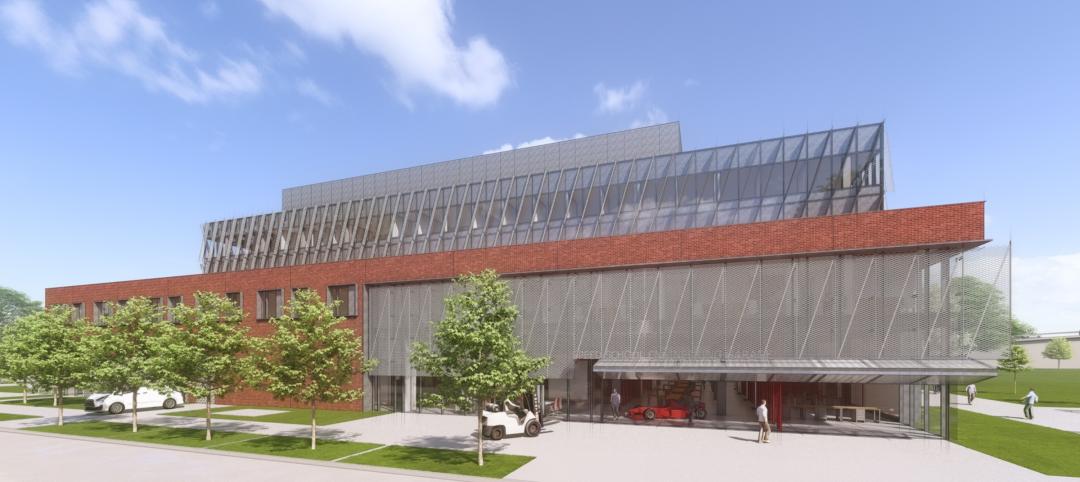PORTLAND, Ore. – Demand for the services of commissioning professionals is rising and will continue to rise into the near future, according to a survey by PECI and the Building Commissioning Association (BCA).
The numbers tell the story of an industry experiencing growth as a result of the increasing popularity of buildings that earn green certifications. In addition, the commissioning industry expects the adoption of more ambitious building and energy codes nationwide to further amplify demand. Together, these factors have created a need for training services that will expand the commissioning workforce and allow the industry to effectively meet these new, rising needs.
We asked attendees of the BCA’s National Conference on Building Commissioning (NCBC) to assess their professional experiences in a variety of areas, including: current motivators for commissioning work; expected changes to the commissioning industry as a result of new building codes; and training needs. The survey revealed that:
· 72 percent of respondents, mostly commissioning professionals, have experienced more demand for new building commissioning services in the past year.
· 69 percent have experienced more demand for existing building commissioning in the past year.
· Green building certifications like LEED® and ENERGYSTAR are significant motivators for commissioning, according to 68 percent of those surveyed.
· Green certifications are followed closely by corporate environmental goals, which were cited as motivators by 64 percent of respondents.
· 56 percent expect changes to building and energy codes to drive an additional increase in demand for commissioning.
· The rising demand has created a need for training industry wide; 68 percent cited a need for training on specialty systems like building enclosures and renewables.
· In order to adapt to new building codes and rising demand, respondents anticipate a need for increased training and certification and the deployment of larger teams with broader skill sets.
Read a more detailed summary of the survey findings here.
The survey findings support the recent creation of a comprehensive Commissioning Authority Training program, which PECIand the BCA developed in tandem and launched this spring. Read more about the curriculum at learn.peci.org.
The findings also correlate with the results of this year’s BCA Leadership Conference, where 71 commissioning authorities representing 66 U.S. and Canadian firms planned the association’s roadmap in strategic areas of education, best practices, certification, codes and standards and international development.
PECI and the BCA have supported the positive evolution of the commissioning industry for decades. PECI helped pioneer commissioning processes and best practices and remains a leader in the development of commissioning programs, research and tools. “PECI’s mission has always aligned exactly with the mission of the commissioning industry,” said Dan Reese, PECISenior Program Manager. “This survey was our latest effort to stay informed and serve the industry as best we can.”
“The BCA helps members and their organizations meet challenges and changes as they arise within the commissioning profession. We worked with PECI to develop this survey and a training program that will help produce outstanding new commissioning professionals and also deepen the knowledge and skills of existing ones,” said Liz Fischer, Executive Director. “Our job is to make sure the industry is ready to embrace the increasing demand and thrive.”
About PECI
PECI is a leader in the field of energy efficiency solutions, with expertise in designing and delivering programs for utility and government agency clients. Through sustained market and customer engagement, PECI achieves persistent energy savings and reaches millions of residential, commercial and industrial customers. A nonprofit corporation dedicated to creating the new energy economy, PECI was founded in 1980 and has offices in Portland, Oregon as well as Northern and Southern California. To learn more visit www.peci.org.
About BCA
The Building Commissioning Association is an international non-profit organization that serves as the recognized authority and resource on commissioning. Our membership is made up of professionals from the commercial building industry who are dedicated to using and maintaining the highest standards and practices in the commissioning process. The mission of the BCAis to guide the building commissioning industry by advancing best practices, education and promoting the benefits of commissioning to design and construct buildings that work. Learn more at www.bcxa.org.
Related Stories
Healthcare Facilities | Jul 22, 2024
5 healthcare building sector trends for 2024-2025
Interactive patient care systems and trauma-informed design are among two emerging trends in the U.S. healthcare building sector, according to BD+C's 2024 Healthcare Annual Report (free download; short registration required).
Office Buildings | Jul 22, 2024
U.S. commercial foreclosures increased 48% in June from last year
The commercial building sector continues to be under financial pressure as foreclosures nationwide increased 48% in June compared to June 2023, according to ATTOM, a real estate data analysis firm.
Codes and Standards | Jul 22, 2024
Tennessee developers can now hire their own building safety inspectors
A new law in Tennessee allows developers to hire their own building inspectors to check for environmental, safety, and construction violations. The law is intended to streamline the building process, particularly in rapidly growing communities.
Codes and Standards | Jul 22, 2024
New FEMA rules include climate change impacts
FEMA’s new rules governing rebuilding after disasters will take into account the impacts of climate change on future flood risk. For decades, the agency has followed a 100-year floodplain standard—an area that has a 1% chance of flooding in a given year.
Construction Costs | Jul 18, 2024
Data center construction costs for 2024
Gordian’s data features more than 100 building models, including computer data centers. These localized models allow architects, engineers, and other preconstruction professionals to quickly and accurately create conceptual estimates for future builds. This table shows a five-year view of costs per square foot for one-story computer data centers.
Sustainability | Jul 18, 2024
Grimshaw launches free online tool to help accelerate decarbonization of buildings
Minoro, an online platform to help accelerate the decarbonization of buildings, was recently launched by architecture firm Grimshaw, in collaboration with more than 20 supporting organizations including World Business Council for Sustainable Development (WBCSD), RIBA, Architecture 2030, the World Green Building Council (WorldGBC) and several national Green Building Councils from across the globe.
University Buildings | Jul 17, 2024
University of Louisville Student Success Building will be new heart of engineering program
A new Student Success Building will serve as the heart of the newly designed University of Louisville’s J.B. Speed School of Engineering. The 115,000-sf structure will greatly increase lab space and consolidate student services to one location.
Healthcare Facilities | Jul 16, 2024
Watch on-demand: Key Trends in the Healthcare Facilities Market for 2024-2025
Join the Building Design+Construction editorial team for this on-demand webinar on key trends, innovations, and opportunities in the $65 billion U.S. healthcare buildings market. A panel of healthcare design and construction experts present their latest projects, trends, innovations, opportunities, and data/research on key healthcare facilities sub-sectors. A 2024-2025 U.S. healthcare facilities market outlook is also presented.
K-12 Schools | Jul 15, 2024
A Cleveland suburb opens a $31.7 million new middle school and renovated high school
Accommodating 1,283 students in grades 6-12, the Warrensville, Ohio school complex features flexible learning environments and offers programs ranging from culinary arts and firefighting training to e-sports.
MFPRO+ News | Jul 15, 2024
More permits for ADUs than single-family homes issued in San Diego
Popularity of granny flats growing in California

















